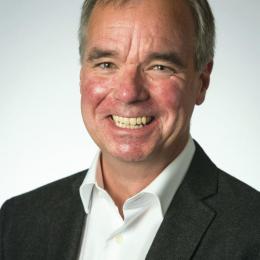“And you may ask yourself — Well…How did I get here?”
— Talking Heads, “Once In A Lifetime” (1981)
At some point during my first year of law school, I signed up for a mentoring program. The details are vague in hindsight, but I recall that it entailed me going to meet a partner in a prominent local firm at his office downtown.
You know that feeling when you find yourself alone with someone and you both understand that the polite thing to do would be to have a conversation, yet neither of you can get a handle on it? Perhaps it was meeting a friend you haven’t seen in a while for drinks, and right after the exchange of hellos and introductions, the friend disappears into the bathroom for a long period of time. Better yet, let’s make it meeting your significant other’s parents, and your significant other becomes scarce for a protracted period right after “hello.”
This meeting was a combination of those settings, with a soupçon of “this person might be able to help me get a clerk positon this summer, so I’d better not screw this up” stirred in for added zest. I can’t swear there was a loud ticking clock in his office, but it’s there in my memory, and I can hear it echo amidst the intermittent throat-clearing and chair-squeaking coming from both sides of the partner’s desk.
It’s fair to say that I was a tad soured by this experience and confused by the concept of mentoring as an organized activity. Fast-forward to 2016, and I find myself having been a participant in two different mentoring programs, this time as a mentor, for several years. I’m reminded of those 70s-era sitcoms with scenes of characters saying “nope, nope, never, no way, not me, not a chance,” which then fades and pans out to reveal them glumly doing whatever they were protesting. The difference for me is that I’m far from glum.
This fall marks the third year I’ve participated in the 1L mentor program at the University of South Carolina School of Law. This program matches attorneys with small groups of students, and begins before the first day of class. It lasts just one semester, but the relationships can and do extend beyond that term. Each time, I’m struck by how similar and different their experiences are to my own from more than 20 years ago. For the most part, what I can share about my experiences in and after school remains relevant, and I get a close look at what’s changed in legal education, the profession, and the experience of being a law student over that same span.
I also participate in a “speed-networking” program sponsored by the South Carolina ACC Chapter, in which our members rotate between small clusters of law students interested in inhouse practice, during the law school’s “career week.” This format is a big improvement from my first career week experience years ago, where I served as the in-house panelist for a session entitled “Alternatives to a Legal Career!” I’m happy to report that our legal careers were acknowledged to exist soon thereafter.
I’ve seen in these sessions that awareness of and enthusiasm for in-house practice is increasing from year to year. A growing number of students are well aware companies are now hiring in-house counsel directly out of law school. I also notice the wide variations in “networking competency” among participants. A handful request a business card, and a subset of these use it to follow up with me in some form, either thanking me and the chapter for participating, or sending a LinkedIn connection request (and encouragingly, many of these provide actual context for the request instead of the stock “I would like to add you…” language). Here, and in the 1L program, I find myself coaching networking skills as much as anything else.
Both programs are very valuable to me personally and professionally, and I highly recommend that you join — or help start — a similar one. Looking back on our careers since graduation, most of us express some surprise at the difference between what we thought we would do after graduation, and what we actually do now. Getting back in touch with the student experience in this way has helped to re-illuminate the early portion of my professional journey and, in turn, has helped me shed a little light on the path of those just starting out.




